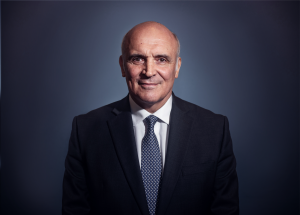Argentine President Nestor Kirchner who called the International Monetary Fund “pathetic” two years ago, may now follow the organization’s advice to repay holders of the nation’s defaulted bonds.
Morgan Stanley Investment Management and Aberdeen Asset Management Plc are betting Kirchner may reach a settlement with the holders of $20 billion of the unpaid debt. They anticipate Kirchner may offer new securities to investors who turned down Argentina’s 2005 debt settlement to end lawsuits and gain access to international markets.
“We are big believers,” said Edwin Gutierrez, who manages $2.7 billion of emerging-market securities at Aberdeen in London and bought some of the securities last month. “At some point they have to access the broader market.”
Argentina’s 15 1/2 percent notes due in 2008, one of 77 issues in default, have jumped 11.3 percent since Jan. 1 to 34.5 cents on the dollar. Only the 15.8 percent return on Ecuador’s dollar bonds is higher among debt of developing countries, according to JPMorgan Chase & Co. data.
Argentina defaulted on $82 billion of bonds in 2001 after a three-year recession cut into tax revenue and foreign reserves.
Almost 25 percent of bondholders rejected the exchange in 2005, when the government offered to pay 30 cents on the dollar.
The payout was the lowest in a government debt restructuring since at least World War II, said Arturo Porzecanski, who teaches international finance at American University in Washington.
`Most Punishing’
“The Argentina deal was the most punishing for investors in contemporary history,” said Porzecanski, a former analyst at ING Groep NV and ABN Amro Holding NV who has followed Latin America since the 1970s. “The Argentine attitude regarding the restructuring has been so bad for so long.”
Negotiating would be a reversal for Kirchner, who mocked IMF Managing Director Rodrigo de Rato for saying in March 2005 that Argentina should be “respectful” to creditors.
`It’s pathetic to listen to them sometimes,” Kirchner, 56, said the day after de Rato made his comments.
Kirchner threatened bondholders during the negotiations that culminated with the 2005 debt restructuring. “Enter now or it will be your problem,” he told investors in a speech in January 2005. Days later, he pushed a bill through congress that blocks the government from making a second offer to creditors.
When Kirchner completed the deal that March, he scolded analysts who had criticized the deal, reeling off the names of 10 “market gurus” on national television and telling them “to learn their lesson.”
Scolding the `Gurus’
“Kirchner knows his voters love it when you stick it to the foreign creditors,” said Jose Luis Espert, one of the analysts cited by Kirchner. “But soon enough he will have to come begging to those holdouts.” Espert heads Espert & Asoc., an economic research firm in Buenos Aires.
The government has no plans to make a new offer, Economy Ministry spokesman Silvio Robles said on Feb. 16. Eric Baurmeister, who helps manage $7 billion in emerging- market debt at Morgan Stanley, and Aberdeen’s Gutierrez said Kirchner will capitulate in part because he has the cash.
Tax revenue swelled as Argentina’s economy, the second-largest in South America, grew more than 8 percent in each of the past four years. Record exports of wheat, soybeans and corn have fueled the country’s recovery from recession.
“Economically they are in a good spot to do it,” Baurmeister, who bought the Argentine bonds after the restructuring was completed, said in an interview in New York.
“The economy is doing great.”
Opportunity Cost
Securities issued in the 2005 debt exchange have rallied. Argentina’s 1.33 percent bonds due 2038 jumped 60 percent to 52.65 cents on the dollar since the end of 2005. The returns swell to about 80 percent when warrants attached to the debt are taken into account.
Bonds in default languished, slipping to 27 cents on the dollar before starting to gain in August. They have returned 15 percent since the restructuring. Many investors now expect the government to offer terms similar to the ones that were rejected two years ago.
“There’s been a substantial opportunity cost for the holdouts,” said Dario Pedrajo, who manages about $100 million at Kapax Investment Advisers LLC in Miami. Pedrajo, who has been trading emerging-market bonds for two decades at firms including
Citigroup Inc., doesn’t own the defaulted debt.
Italian retirees, many of whom have family in Argentina, were among the biggest holdouts. Some 450,000 Italian investors owned the bonds at the time of the restructuring, according to the Global Committee of Argentina Bondholders. At least 195,000 decided not to participate.
Dart Sues
Kenneth Dart, a billionaire investor who sued Brazil during that country’s 1994 restructuring, is among the investors who are pursuing the government in court. Dart tried unsuccessfully to seize Argentine central-bank deposits in New York.
Argentina has refrained from selling bonds abroad in part because officials are concerned creditors would grab the interest payments on new securities. Elliott Associates LP, a New York- based firm, used that tactic against Peru in 2000.
“It’s a legal hassle for them right now,” Aberdeen’s Gutierrez said. “They will want to get rid of this headache.”
Kirchner may wait until after October elections to avoid hurting his image with voters, Baurmeister and Gutierrez said.
Cabinet Chief Alberto Fernandez said last month that either Kirchner or his wife, Cristina Fernandez, would likely run for president then.
Horacio Vazquez, a 50-year-old unemployed engineer who organized a group of investors holding the defaulted debt in Buenos Aires, said many domestic creditors are “just burned out” and ready to sell.
“This again will be a deal for the big banks,” Vazquez
said. “They are buying the bonds cheap in the hope of making big profits.”

